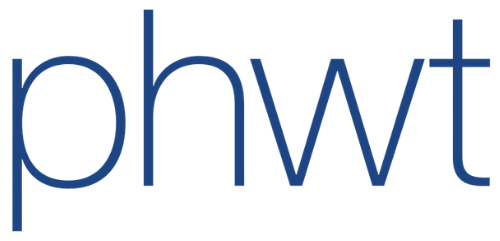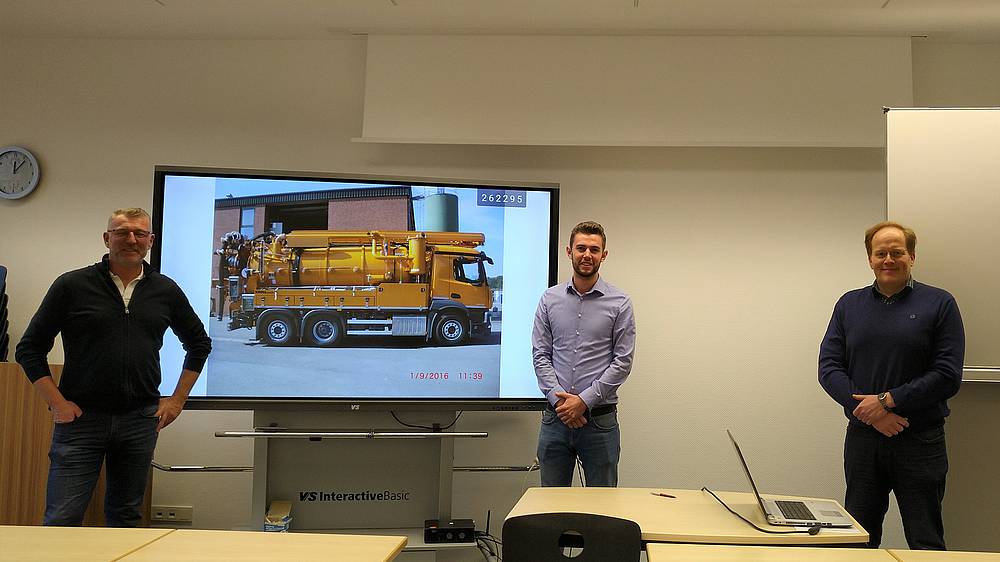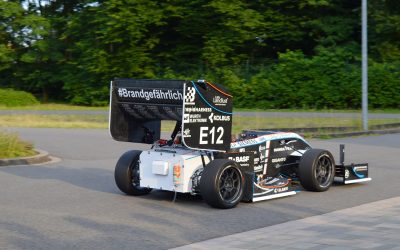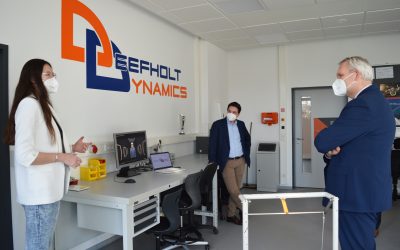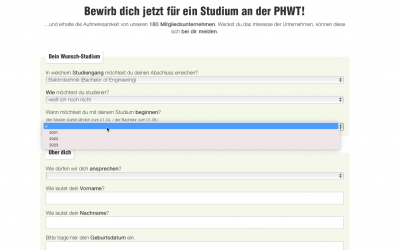Should the body of a flush truck be designed with water recovery or not? Or is the large extension arm on the vehicle much more important? And finally, the question arises as to how all these things can be economically represented. These and many other questions were discussed by the students of the Bachelor project group at the Vechta site with Matthias Peschke from the flushing vehicle manufacturer KROLL.
The background to this is the current joint project between students of business administration and the wastewater companies of the city of Vechta. Hubertus Weißer (wastewater company of the city of Vechta) and Prof. Dr. Maik Büssing (PHWT) had already started the project in summer 2020. On this basis, different scenarios for the use of flushing vehicles in the city area have been considered in recent months and discussed in terms of their economic viability. Since technical questions kept coming up, the students decided to invite an expert from a flush vehicle manufacturer. He was able to present and explain a whole range of technical aspects, so that many solutions could be worked out for the everyday flushing of the sewers as well as for special operations, such as pipe blockages or the analysis of damage to the pipe network. Often there are small things that only insiders can know, but which have an enormous significance and impact on the overall project. One point, for example, is the provision of a hand-washing basin with hot water on the vehicle. If this is not available, the driver would be entitled to return to the depot at every break to wash his hands. Consequently, washing hands at breakfast and lunch breaks would quickly cost an hour of operating time per day and greatly reduce the economic efficiency of the vehicle. In this way, the students were able to gain a lot of knowledge for their project so that they could make a well-founded recommendation to the wastewater companies of the city of Vechta on whether to operate flushing vehicles themselves or to outsource the work.
Due to the current Corona situation, the entire discussion and solution development with the students took place online. Only Matthias Paeschke from the flushing vehicle manufacturer, Prof. Dr. Maik Büssing and two students had come together for the event in the auditorium of the PHWT in Vechta, so that even compliance with hygiene and distance rules were no obstacle to the continuation of the project.
